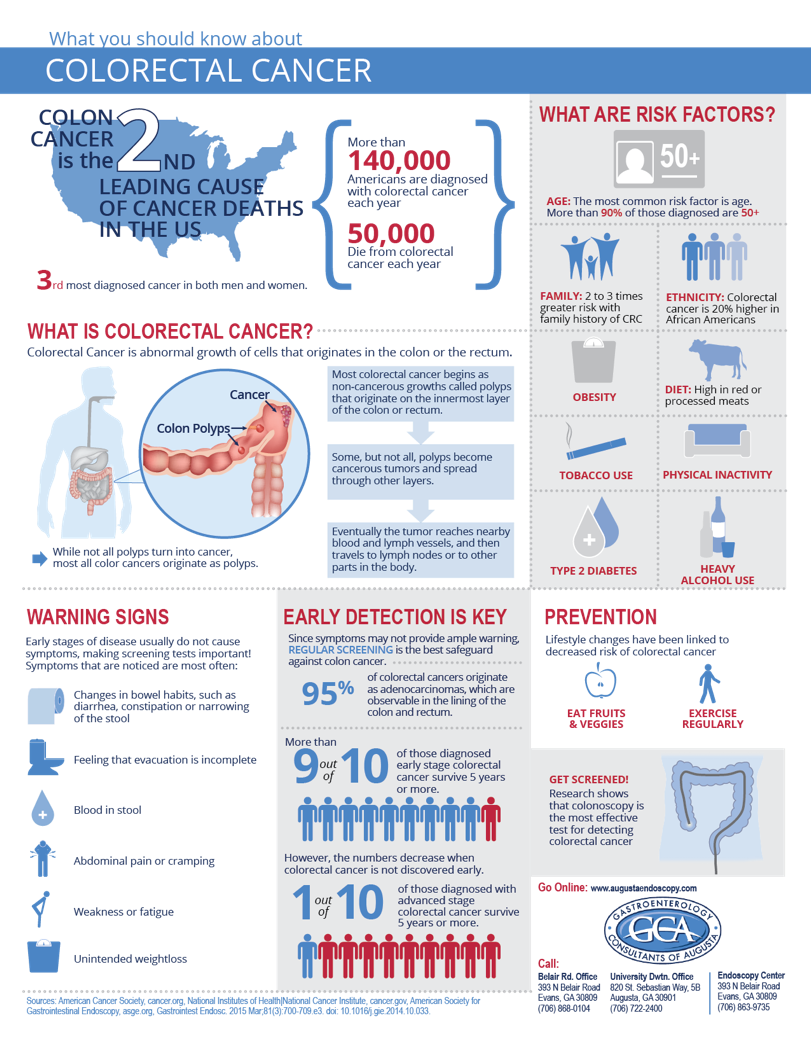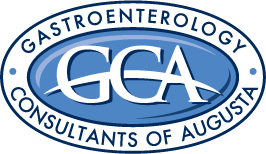Colorectal Cancer
Your colon, also known as the large intestine is about six feet long, beginning at the cecum and ending at the anus. The anus is also known as the rectum, and cancer located in that area is called rectal cancer. Cancer located in the rest of the colon is called colon cancer. Colorectal cancer is the term that describes both of those cancers collectively.
Colorectal cancer is the third most diagnosed form of cancer, and the second leading cause of cancer deaths in the US. Men and women fairly equally are diagnosed with these cancers. While colon cancer can occur at most any age, they most frequently occur in people aged 50 and older. African-Americans have a higher risk of developing colon cancer, as well as those with family history of colon polyps or colon cancer. Some genetic diseases and Inflammatory Bowel Disease may also increase a person’s risk.
 Most cases of colon cancer begin as small, noncancerous growths called polyps. Over time some of these polyps become cancerous. Colorectal cancers may produce no symptoms at first, but as tumors grow, they can disrupt the body’s ability to digest food and remove waste, leading to severe abdominal and bowel problems. Symptoms may include:
Most cases of colon cancer begin as small, noncancerous growths called polyps. Over time some of these polyps become cancerous. Colorectal cancers may produce no symptoms at first, but as tumors grow, they can disrupt the body’s ability to digest food and remove waste, leading to severe abdominal and bowel problems. Symptoms may include:
- Changes in bowel habits, such as diarrhea, constipation or narrowing of the stool
- Feeling that evacuation is incomplete
- Blood in stool
- Abdominal pain or cramping
- Weakness or fatigue
- Unintended weight loss
Colorectal cancer screening can often find colon cancer early, when it is most likely to be treatable. A screening colonoscopy may also prevent colon cancer altogether. Since colon cancer most often arises from pre-cancerous growths or polyps, removing them early eliminates the chance that colon cancer will develop from those polyps.
We want you to live a long healthy life, especially without a preventable disease like colon cancer. If you are age 50 or older or have a family history of colon cancer, you should urgently discuss colon cancer screening with your primary care physician or call our office at (706) 868-0104 for more information.
The content on our website is for informational purposes only, and is not intended to diagnose or treat any medical conditions. Always seek the advice of your physician with any questions you may have regarding your health.
